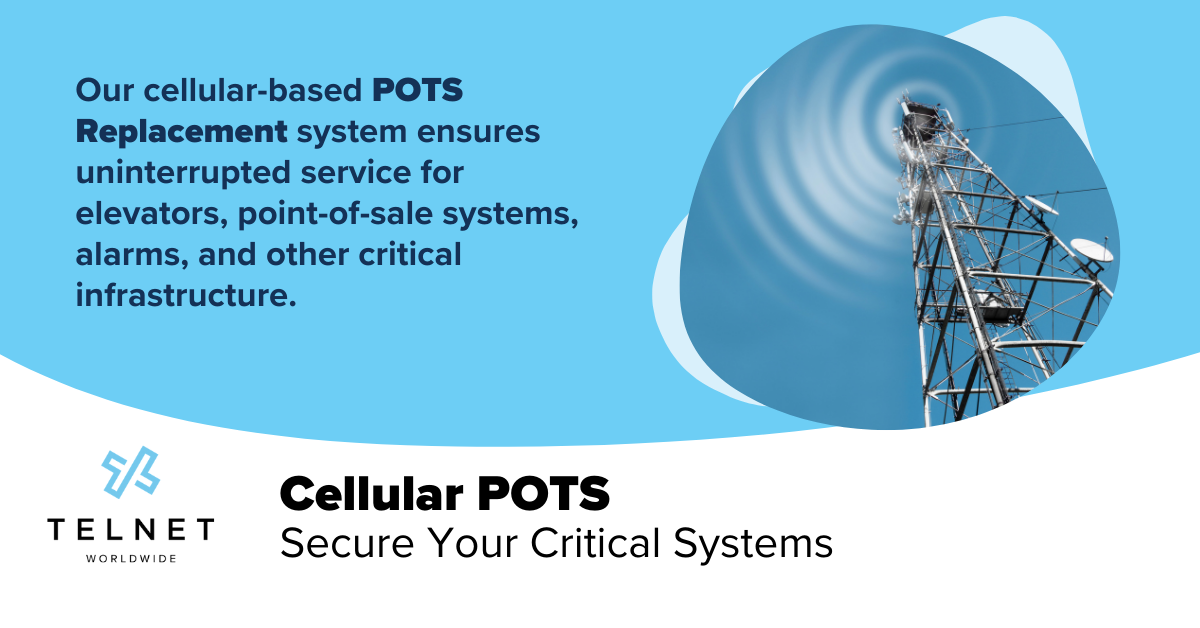If you’ve been in touch with your communication service provider recently, you might have heard about the “T1 time bomb.” Thanks to some recent regulatory changes, providers are expecting the cost of T1s to skyrocket in the coming year; up by 400 percent by late 2022 — if they’re even available at all.

But what even is a T1? And why might it matter to your business? Let’s get into the details.
What Is a T1 Line?
A T1 line is a twisted copper wire that transfers voice and data from one location to another via digital signals. These lines have been the industry standard for decades thanks to their capacity. A T1 line can transmit the equivalent of 24 traditional voice channels, making it optimal for commercial buildings.
Offices with many phone lines would often save money by getting a dedicated T1 line, instead of paying for individual phone lines. Plus, they’d get high-speed internet access at the same time. It was all about capacity, reliability and functionality. But as with all technology, it appears that the T1 is being replaced by more high-tech options.
The Era of Copper
To understand the significance of T1 lines, it’s helpful to walk through the history of telecommunications in the U.S. Let’s go back to the beginning. In 1933, the government allowed AT&T to become a monopoly in order to build out a communications network. The goal was to give every home and business in the country access to this copper-based network.

Years later, Congress passed the Telecommunications Act of 1996, which revoked AT&T’s sanctioned monopoly. They wanted to invite competition and innovation back into the industry. AT&T was then required to give new service providers access to their network connections at a wholesale price. This effectively transformed the industry, ushering in lower costs, innovative products and enhanced customer service.
The TDM Phase Out
So what’s changed lately that’s making copper infrastructure obsolete? Well, the FCC recently granted some of the biggest players in the industry (AT&T, Frontier, Lumen and Verizon) permission to stop providing wholesale access to their copper network. And these industry titans have decided to retire these services altogether. But why? Well, just like any other industry, telecom is not immune from the effects of changing technology and innovation.
The copper wire networks that span the country are outdated, and investment is being directed toward fiber, broadband and wireless networks instead. These options offer greater bandwidth and versatility, supporting more applications such as VoIP. The problem is that millions of businesses are still using T1-based services, and prices are expected to increase by 400 percent! If you’re one of those businesses, how can you protect yourself from these upcoming price hikes? It’s time to get familiar with IP-based services.
Future-Proof Your Communications
Impending price increases aren’t the only reason organizations are switching to IP services. Beyond cost savings, businesses can benefit from increased speed, reduced latency and more reliability. Moving to the cloud also allows you to embrace the latest communication platforms and applications so you can properly support a mobile workforce.

Session Initiation Protocol (SIP for short) is an incredibly popular alternative to traditional T1-based services. This protocol allows users to make calls, send messages and host video calls on a global scale.
The most noticeable difference between traditional T1 and SIP networks is flexibility. With a T1, you’re restricted to a fixed link or location. SIP, on the other hand, delivers data over the internet rather than a physical copper line, which allows you to easily move from one location to another (which is especially important for hybrid work). This is the beauty of cloud-based telephony.
What’s Next For Your Business?
It’s going to take a few years for T1s to be entirely phased out, but if you have one, now is the time to start looking into alternatives. The service provider you choose should be able to handle the entirety of the switching process — from porting to turn up — without any loss of service during the changeover.
That’s what we specialize in at TelNet Worldwide. We provide cutting-edge voice services for thousands of businesses and process millions of minutes each month. With a variety of cloud communications solutions (like SIP Trunking, Cloud PBX, Webex and Microsoft Teams Direct Routing), we can find the perfect match for your organization. Let’s get you migrated today!





